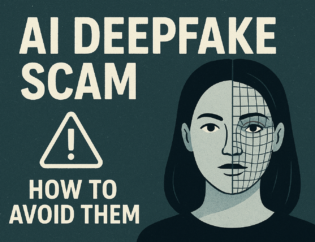
Cryptocurrency is a form of digital or virtual currency that exists primarily online. Unlike traditional money issued by governments, cryptocurrencies are typically decentralized and operate on blockchain technology — a distributed public ledger that records transactions across many computers. Bitcoin and Ethereum (Ether) are the most widely known cryptocurrencies, but thousands of others exist, with new projects emerging regularly.
While cryptocurrency offers innovation and convenience, it also carries significant risks. Understanding how crypto works, how it differs from traditional money, and how scams operate is essential before buying, investing, or paying with cryptocurrency.
How Do People Use Cryptocurrency?
People use cryptocurrency for a variety of reasons:
- Fast, global payments: Crypto transactions can be sent across borders quickly, often without relying on traditional banks.
- Lower transaction costs: Some users seek to avoid bank fees, wire transfer charges, or currency exchange costs.
- Investment and speculation: Many people buy cryptocurrency hoping its value will increase over time.
- Privacy considerations: While not truly anonymous, crypto can offer more privacy than traditional banking in certain cases.
That said, cryptocurrency is highly volatile and speculative. Prices can rise or fall dramatically in short periods, making it a high-risk investment.
How Do You Get Cryptocurrency?
You can acquire cryptocurrency in several ways:
- Cryptocurrency exchanges: Platforms where you can buy crypto using fiat currency (such as USD, GBP, or EUR).
- Mobile apps and websites: Many apps allow users to buy, sell, and hold crypto directly.
- Cryptocurrency ATMs: Machines that let you exchange cash for crypto, often with high fees.
- Mining: A complex process where powerful computers validate blockchain transactions and earn cryptocurrency as a reward. Mining requires advanced hardware, technical expertise, and significant energy costs.
Always research any platform before using it, as fake exchanges and fraudulent apps are common.
Where and How Do You Store Cryptocurrency?
Cryptocurrency is stored in a digital wallet, which holds the private keys that allow you to access and control your funds. Wallets can be:
- Online (hot wallets): Wallets hosted by exchanges or apps, connected to the internet.
- Software wallets: Installed on your computer or smartphone.
- Hardware wallets (cold wallets): Physical devices or external drives that store crypto offline.
Each wallet has a unique wallet address, typically a long string of letters and numbers.
⚠️ Important risk: If something goes wrong — such as losing your private keys, sending crypto to the wrong address, being hacked, or if an exchange shuts down — there is usually no way to recover your funds. Transactions are irreversible, and there is no central authority to help you.
How Is Cryptocurrency Different From U.S. Dollars?
Cryptocurrency differs from traditional money in several critical ways:
No Government Backing or Insurance
Cryptocurrency is not backed by any government. Funds held in crypto wallets or exchanges are not insured like money deposited in FDIC-insured bank accounts. If an exchange collapses or is hacked, the government has no obligation to reimburse losses.
Extreme Price Volatility
Cryptocurrency values change constantly — sometimes within minutes or hours. Prices are influenced by market demand, speculation, regulations, news, and social media trends. An asset worth thousands today could be worth a fraction tomorrow, with no guarantee of recovery.
Limited Consumer Protections
Unlike traditional banking systems, crypto transactions typically lack dispute resolution, chargebacks, or fraud protections.
Paying With Cryptocurrency: What You Should Know
Paying with cryptocurrency is very different from paying with a credit card or bank transfer.
- No legal protections: Credit and debit cards offer consumer protections if something goes wrong. Crypto payments generally do not.
- Transactions are irreversible: Once crypto is sent, it can only be returned if the recipient willingly sends it back.
- Public transaction records: Crypto transactions are recorded on a public blockchain. While names may not appear, wallet addresses and transaction details are visible and can sometimes be traced back to individuals.
Before paying with crypto, always research the seller, confirm legitimacy, and understand that mistakes are usually permanent.
How to Avoid Cryptocurrency Scams
Scammers frequently exploit the complexity and hype surrounding cryptocurrency. Understanding common warning signs can help protect your funds.
Key Red Flags
- Only scammers demand payment in cryptocurrency. No legitimate business or government agency will require crypto payments.
- Guaranteed profits are always fake. Anyone promising quick, risk-free, or guaranteed returns is running a scam.
- Romance and crypto never mix. If someone you meet online asks you to invest or send crypto, it is a scam.
- Pressure tactics: Scammers create urgency, fear, or secrecy to stop you from thinking clearly.
Common Cryptocurrency Scams
Investment Scams
Investment scams often promise high returns with little or no risk. They may start through:
- Social media platforms
- Dating apps
- Emails, texts, or cold calls
Common examples include:
- Fake investment managers: They ask you to buy crypto and transfer it to their platform, where withdrawals are blocked unless you pay additional fees.
- Celebrity impersonation scams: Scammers pose as well-known figures offering to multiply any crypto you send.
- Romance investment scams: A so-called love interest encourages you to invest or send crypto. Once sent, the funds are gone.
Business, Government, and Job Impersonation Scams
Scammers may impersonate trusted organizations to convince victims to buy and send cryptocurrency.
Common Tactics
- Impersonating companies: Fake messages claiming to be from banks, Amazon, Microsoft, or delivery services.
- Government impersonation: Claims of legal trouble, frozen accounts, or unpaid fees that must be resolved using crypto.
- Fake crypto tokens: Fraudulent companies pretending to launch new coins or tokens.
- Job scams: Fake job offers that require paying fees in crypto or converting money to crypto as part of the role.
⚠️ Remember: No legitimate employer, business, or government agency will ever demand cryptocurrency payments.
Blackmail and Extortion Scams
Some scammers threaten to release embarrassing photos, videos, or personal information unless paid in cryptocurrency. These threats are criminal extortion attempts. Do not pay. Preserve evidence and report the incident immediately.
How to Report Cryptocurrency Scams
If you believe you have been targeted or victimized:
- Report the incident to Online Scam Report
- Notify your local financial institution
- Preserve transaction records, wallet addresses, and communications
Early reporting can help authorities track patterns, warn others, and potentially prevent further losses.
Final Thoughts
Cryptocurrency can offer innovation and opportunity, but it also presents serious risks. Lack of regulation, irreversible transactions, and widespread scams make education essential. Always research thoroughly, question promises of easy money, and never send cryptocurrency to someone you do not fully trust.
Staying informed is your strongest defense against cryptocurrency fraud.










